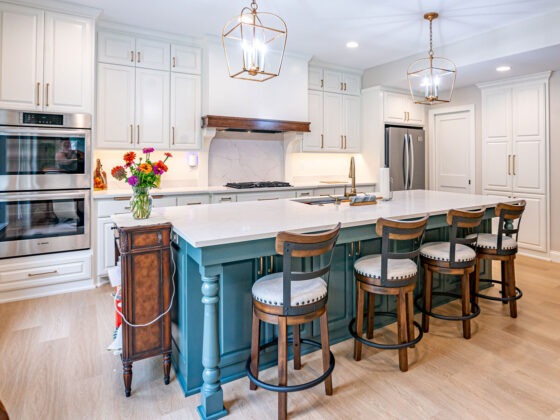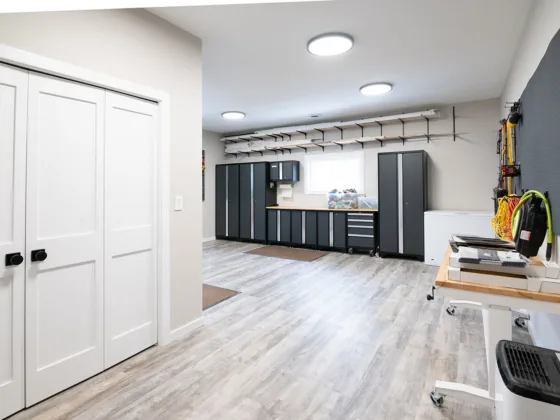Part 2: Completing the Pre-Renovation Checklist for Your Home
Introduction: Wrapping Up Your Home Renovation Prep
In Part 1 of this series, we laid the foundation for a successful home renovation by discussing the importance of setting clear goals, aligning your vision with your budget, and preparing for unexpected costs. Now that you’ve got a solid framework, it’s time to take a deeper dive into the next essential steps of preparation.
The next phase focuses on solidifying your project’s details and managing the logistics to ensure everything runs smoothly. From choosing the right contractors to finalizing your financial plans, this part of the process ensures you’re ready to move forward with confidence. Let’s explore the final steps in preparing your home for a renovation.
Choosing the Right Contractor and Finalizing Contracts
Selecting a qualified contractor is one of the most important decisions you’ll make in the renovation process. With so much riding on the quality of their work, it’s vital to do your due diligence when vetting potential contractors. Ask for at least three written quotes, and make sure each quote is itemized to give you a clear understanding of labor, materials, and additional expenses.
When choosing a contractor, don’t just focus on price—experience and reliability are just as important. Review each contractor’s credentials, past projects, and customer reviews. Also, check that they’re licensed and insured to protect yourself from liability during the project. If possible, ask for references or examples of previous projects similar to yours.
Once you’ve selected your contractor, ensure that you have a written contract in place that includes project start and end dates, payment terms, a clear scope of work, and an itemized list of materials. The contract should also outline how changes will be handled during the project. This helps protect you from misunderstandings and ensures that everyone involved knows what to expect.
Prepare Your Living Space for Construction
Home renovations can be disruptive, and it’s crucial to prepare your space properly to minimize the impact on your daily life. Start by removing all valuables from work zones and storing them safely off-site if possible. Even rooms that aren’t being directly remodeled can accumulate dust and debris, so be sure to cover any furniture or flooring that might be affected.
If your home renovation involves significant work, such as plumbing or electrical upgrades, coordinate with your contractor to arrange for temporary solutions, such as relocating utilities or setting up alternative water or bathroom facilities.
It’s also essential to communicate with family members, pets, and housemates about how the renovation will affect their routines. For example, if the project will cause significant disruption, consider temporarily relocating vulnerable family members or pets to keep them safe during demolition and construction phases.
Set Up Communication and Manage Expectations
Effective communication is the cornerstone of any successful renovation. Establishing clear communication with your contractor ensures that everyone stays on the same page throughout the project. Agree on how often you’ll check in and what form that communication will take—whether through email, phone calls, or digital project management tools.
Managing expectations is just as important. Be realistic about how long the renovation will take, how much disruption there will be, and what the final outcome will look like. Setting expectations with your contractor helps you avoid misunderstandings down the road.
For any project, it’s also helpful to schedule regular walkthroughs with your contractor. This allows you to review progress, address issues early, and make necessary adjustments. By staying actively involved and communicating effectively, you’ll ensure that the project is progressing as planned.
Final Steps and Setting the Stage for Success
The final steps in preparing for home renovation include double-checking all details, finalizing your financials, and making sure you’re fully ready for the renovation to begin. Review the contract, confirm all permits are in place, and ensure all required approvals are completed. The more you prepare now, the smoother the actual renovation will go.
Make sure your contractor has the necessary permits and that they’re familiar with your local building codes. Your contractor should be able to handle most of the paperwork, but it’s important to stay informed and involved in the process.
Conclusion: Setting Yourself Up for a Successful Renovation
Preparing your home for renovation doesn’t stop once the contractor is hired or the budget is set—it’s an ongoing process that requires attention to detail, communication, and thorough planning. By following the steps outlined in both parts of this series, you’ll be well-equipped to tackle any challenges that arise and keep your project on track.
In the end, careful preparation ensures that you’ll not only get the results you want but also enjoy a more efficient, less stressful renovation experience. With everything in place, you’re ready to begin your home transformation with confidence.



